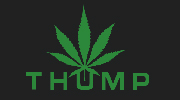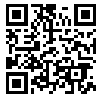Commercial cultivation in indoor settings presents unique challenges for growers, especially when it comes to managing pests and diseases. The controlled environment of indoor cultivation provides an ideal breeding ground for unwanted invaders, necessitating a strategic and integrated approach to pest and disease control. In this article, we explore the various methods employed by commercial cultivators to maintain a healthy and thriving crop in indoor facilities.
Preventative Measures:
a. Facility Design and Maintenance: Cultivators start by designing facilities with pest prevention in mind. Proper ventilation, sealed entry points, and regular facility maintenance help minimize the risk of pests infiltrating the growing space.
b. Quarantine Protocols: Before introducing new plants or equipment into the cultivation area, growers often implement quarantine measures to ensure they are not inadvertently introducing pests or diseases.
Biological Controls:
a. Beneficial Insects: Many commercial cultivators use natural predators such as ladybugs, predatory mites, and nematodes to control pest populations. These beneficial insects prey on common pests, providing an environmentally friendly and sustainable solution.
b. Microbial Controls: Biopesticides containing beneficial microbes like Bacillus thuringiensis (Bt) are commonly employed to combat diseases and pests. These microorganisms act as natural antagonists, disrupting the life cycles of harmful organisms.
Cultural Practices:
a. Crop Rotation: Commercial cultivators often rotate crops to disrupt the life cycles of pests and diseases. Changing the plant species in a given area can help prevent the build-up of specific pathogens or pests.
b. Pruning and Sanitation: Regular pruning removes infected plant material, reducing the spread of diseases. Cultivators also practice good sanitation by cleaning and sterilizing tools and equipment to prevent cross-contamination.
Chemical Controls:
a. Pesticides: While chemical pesticides are used as a last resort, many growers prefer to minimize their use due to concerns about residues and environmental impact. When necessary, cultivators choose carefully selected pesticides that are safe and effective.
b. Integrated Pest Management (IPM): IPM involves the careful monitoring of pest populations and the application of control methods in a targeted and sustainable manner. This approach minimizes the use of chemical controls and emphasizes a holistic, long-term strategy.
Monitoring and Early Detection:
a. Pest Scouting: Regular monitoring of crops helps cultivators detect pests and diseases at an early stage. This allows for swift intervention before the issue escalates.
b. Technology Integration: Advancements in technology have led to the development of automated monitoring systems that use sensors to detect changes in environmental conditions or signs of pest infestations. These systems provide real-time data, enabling quick and informed decision-making.
Successful pest and disease management in commercial indoor cultivation relies on a combination of preventative measures, biological controls, cultural practices, and, when necessary, carefully selected chemical controls. By adopting an integrated approach and staying vigilant through regular monitoring, cultivators can create a sustainable and resilient environment for their crops, ensuring a high-quality yield while minimizing the impact on the surrounding ecosystem.
 English
English








